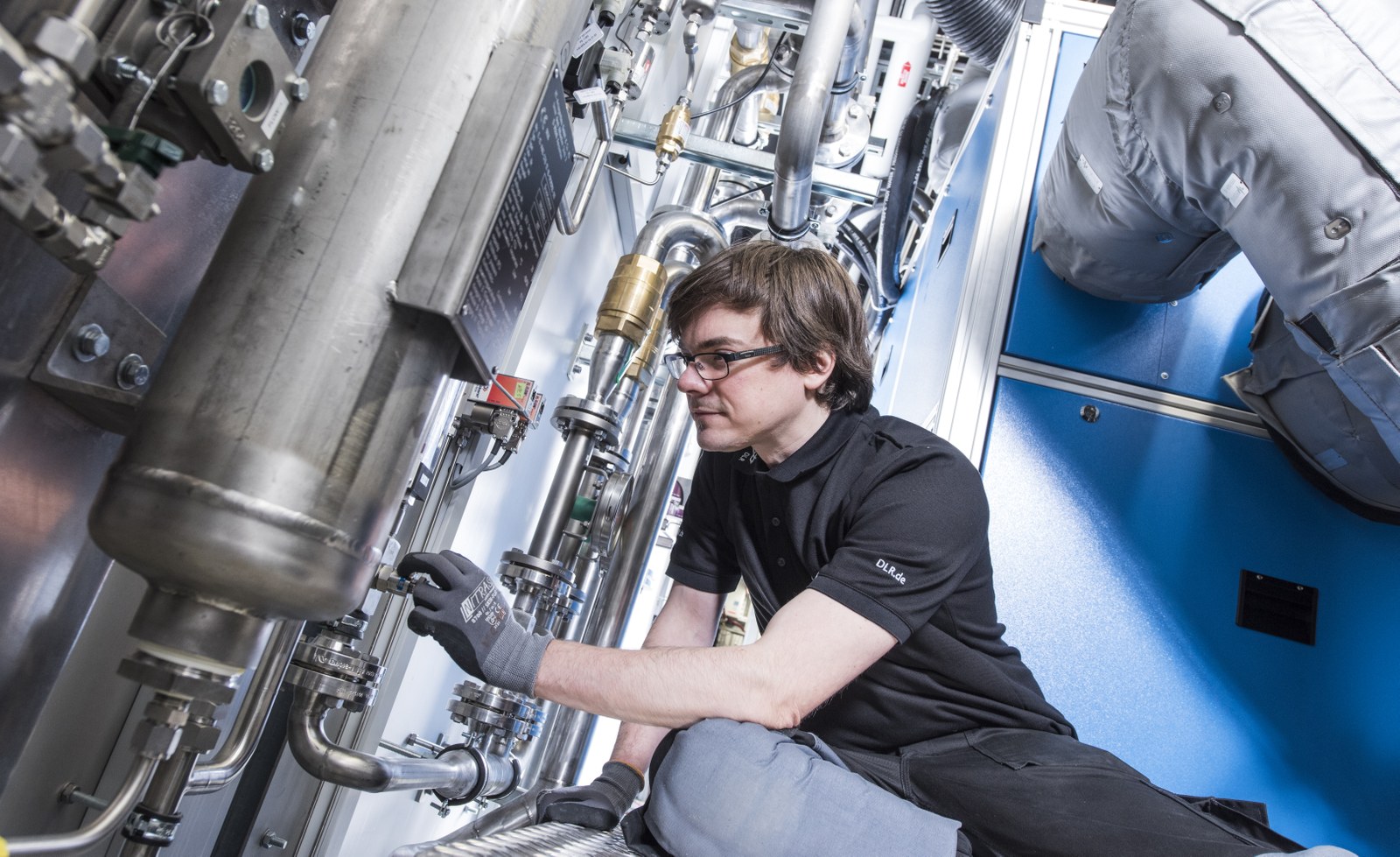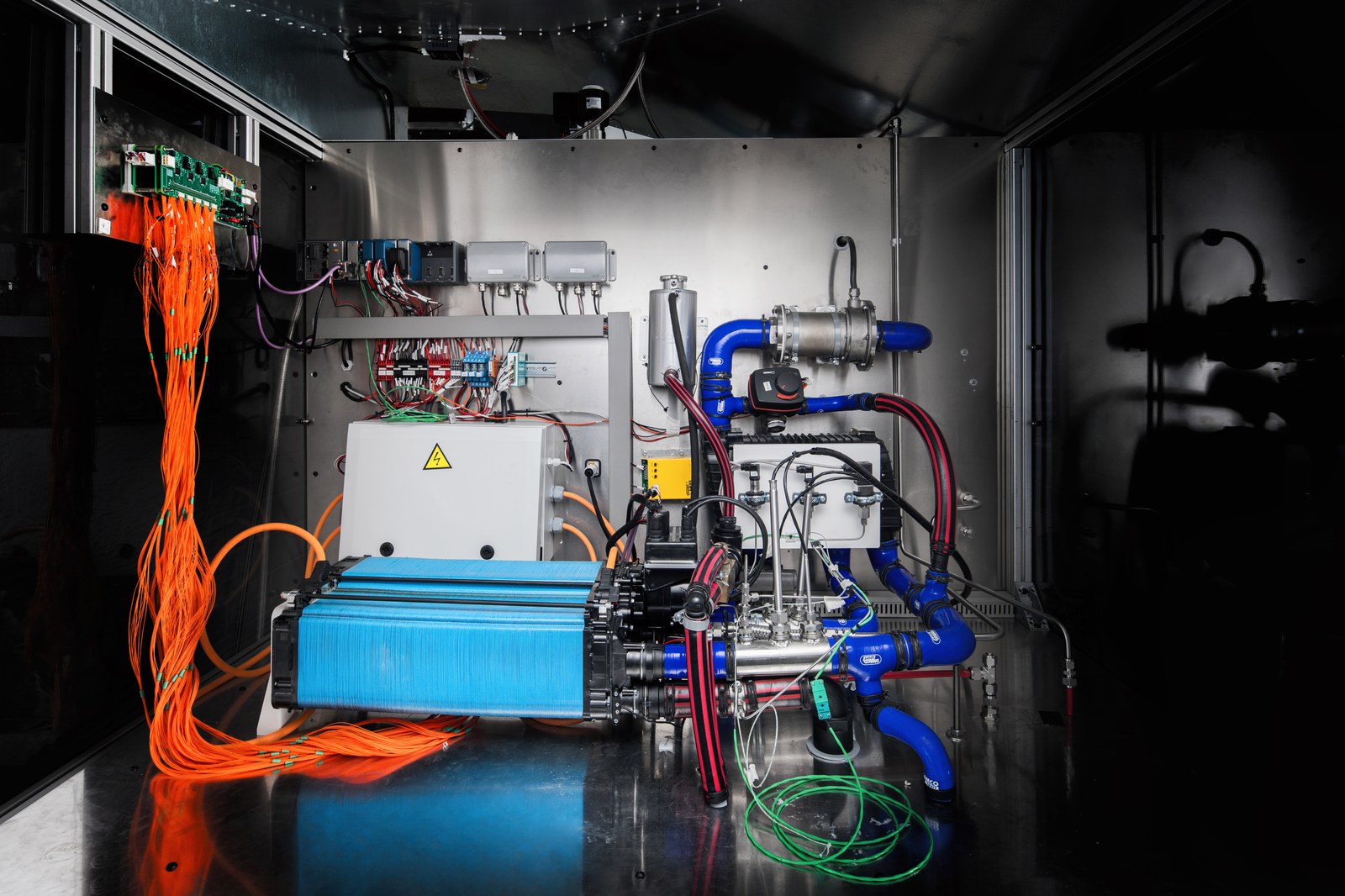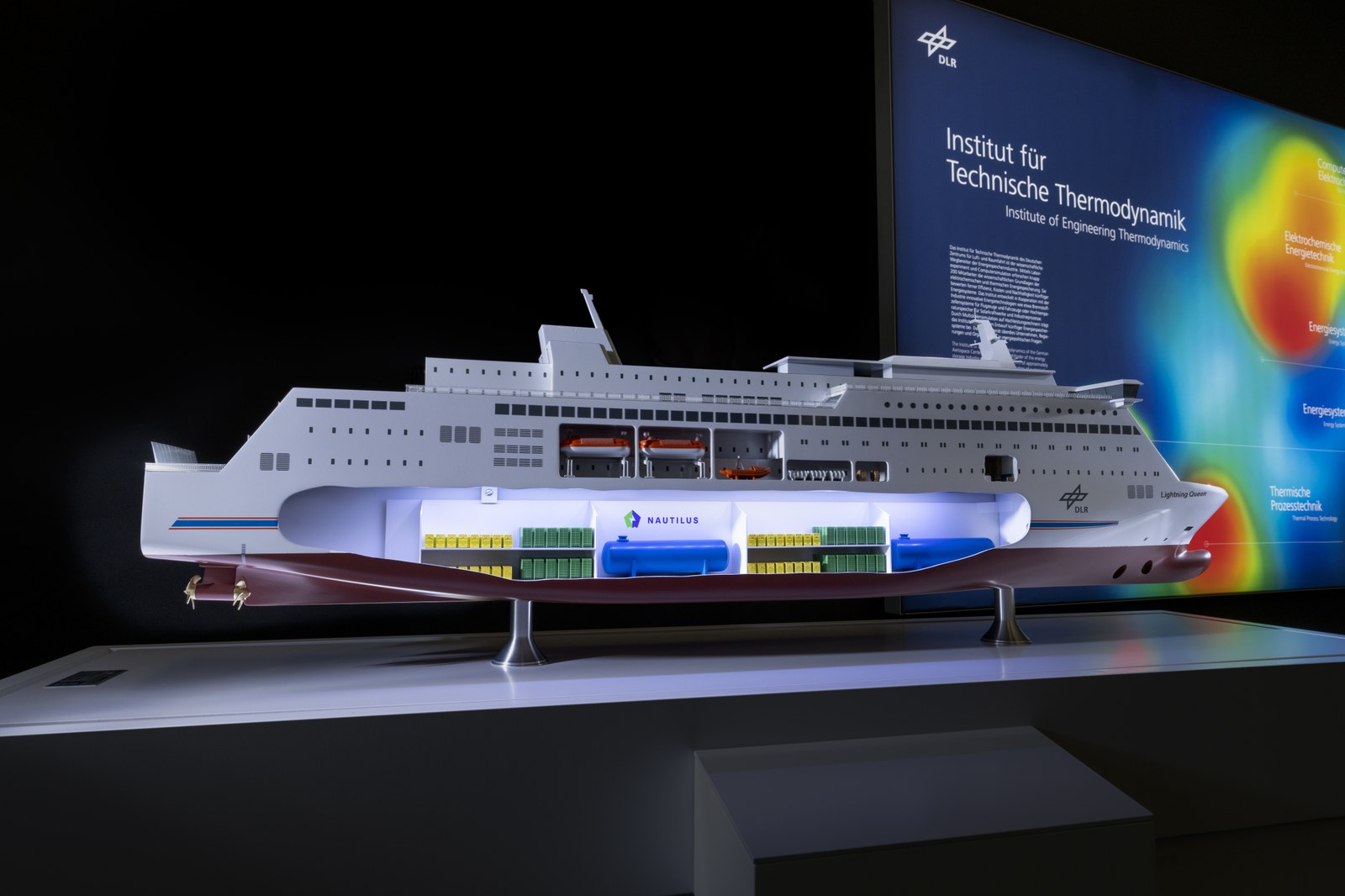Department Energy System Integration

The Department of Energy System Integration carries out application-oriented research and focuses on innovative systems for energy storage and conversion as well as analysing process engineering processes. Our work at the institute forms a bridge between the traditional focal points of electrochemical and thermochemical energy storage and an interdisciplinary and practice-orientated focus.
Our main objective is to develop technologies to reduce emissions in aviation and shipping. To this end, we are conducting intensive research into low-emission fuel cell drives and the integration of electrolysers for the production of sustainable fuels.
Our aim is to transfer scientific findings from basic research into application, taking established industrial development processes into account.
In terms of powertrains, we develop high-performance battery systems and multifunctional fuel cell systems. These are tailored to the respective application through a targeted selection of suitable components and detailed modelling and simulation calculations. We also work on the development of critical system components and the optimisation of operating strategies.
We are also researching technological concepts for integrating renewable energies into large-scale industrial processes. In particular, we are investigating the production of hydrogen and other alternative fuels for aviation. Our focus here is on increasing efficiency, reducing CO2 emissions and optimising costs.
Our main areas of work include
- Development of multifunctional, complex fuel cell and battery systems for aviation applications, satellites and naval vessels from 100+ Kilowatts towards the Megawatts-range
- Studies on the direct electrochemical conversion of various fuels (methanol, dimethyl ether) as the basis of direct fuel cell systems
- Investigations in the field of pressure electrolysers
- Experimental and simulative investigations of electrolysis and fuel cell systems in close coupling with batteries and upstream/downstream processes in the experimental range of 100+ Kilowatts
- Operating strategies with charge management and fast charging of battery systems
- Development of highly efficient and reliable hybrid systems with direct coupling of battery and fuel cell and minimal need for power electronics (direct hybridisation)
- Method development for cost and life cycle analysis of process engineering systems for aviation applications and satellites and naval vessels from 100+ Kilowatts towards the Megawatt-range.
- Development of methods for the cost and life cycle analysis of process engineering processes.
- Technical-economic-ecological evaluation of the production of alternative fuels and chemical productsDevelopment of an internal DLR evaluation tool (TEPET) for the transparent analysis of various process concepts and links as well as production sites.



